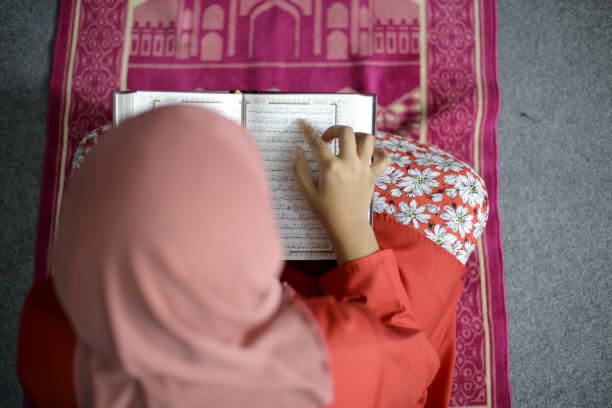Technology has fundamentally transformed how Muslims worldwide access and engage with Quranic education, breaking down barriers that previously limited learning opportunities to specific geographic locations or social circumstances. This digital revolution has democratized access to high-quality Islamic instruction while preserving the authenticity and traditional methodology that characterizes authentic Quranic education. The integration of modern technology with classical Islamic pedagogy creates unprecedented opportunities for comprehensive religious learning.
Interactive Learning Platforms and User Experience
Modern online Quran learning platforms utilize sophisticated user interfaces that make religious education more engaging and effective than traditional classroom methods. These platforms incorporate interactive features such as real-time pronunciation feedback, progress tracking, multimedia lessons, and gamification elements that maintain student motivation and engagement. The user-friendly design of these systems ensures that students of all ages and technical abilities can navigate the learning environment successfully.
Real-Time Audio and Video Communication
High-quality audio and video communication technologies enable students to receive personalized instruction from qualified teachers regardless of geographic distance. These real-time interactions preserve the essential human element of Islamic education while providing flexibility and convenience that traditional classroom settings cannot match. Students can receive immediate feedback on pronunciation, recitation, and comprehension, ensuring that learning quality remains high despite the digital delivery method.
Artificial Intelligence and Personalized Learning
Advanced artificial intelligence systems analyze individual student performance patterns to create personalized learning experiences that adapt to each student's strengths, challenges, and learning pace. These intelligent systems can identify areas requiring additional practice, adjust difficulty levels automatically, and provide customized study recommendations that optimize learning efficiency. This personalization ensures that every student receives instruction tailored to their specific needs and capabilities.
Mobile Applications for Convenient Access
Smartphone and tablet applications have made Quranic learning accessible anywhere and anytime, allowing students to utilize travel time, break periods, and other brief moments for religious study. These mobile platforms often include offline capabilities that ensure learning continuity even without internet connectivity. The convenience of mobile access has significantly increased study frequency and consistency among busy students who struggle to maintain regular learning schedules.
Cloud-Based Storage and Progress Synchronization
Cloud technology enables students to access their learning materials, progress records, and personal notes from any device, ensuring continuity and convenience in their educational journey. This synchronization capability allows students to switch seamlessly between different devices while maintaining their learning progress and personalized settings. Such flexibility accommodates modern lifestyles while supporting consistent educational engagement.
Advanced Audio Processing and Pronunciation Analysis
Sophisticated audio processing technologies can analyze student recitation attempts and provide detailed feedback on pronunciation accuracy, rhythm, and Tajweed application. These systems use advanced algorithms to compare student performance against expert recitations, identifying specific areas requiring improvement and providing targeted exercises for skill development. This technology supplements human instruction by providing immediate, objective feedback on technical aspects of recitation.
Virtual Reality and Immersive Learning Experiences
Emerging virtual reality technologies are beginning to create immersive learning environments that can simulate traditional Islamic learning settings, such as mosque classrooms or historical Islamic institutions. These virtual environments provide cultural context and atmospheric elements that enhance the educational experience while maintaining the reverent atmosphere associated with religious study. Such innovations represent the cutting edge of educational technology applied to religious instruction.
Global Community Building and Social Learning
Online platforms facilitate the creation of global learning communities where students from different countries and cultures can interact, share experiences, and support each other's educational journeys. These communities often include discussion forums, study groups, and peer mentoring programs that enhance the social aspects of religious learning. The international nature of these communities exposes students to diverse Islamic cultures and practices while building lasting friendships based on shared faith.
Assessment and Certification Systems
Digital platforms have developed sophisticated assessment systems that evaluate student progress objectively and provide recognized certifications upon completion of various educational milestones. These assessment tools use multiple evaluation methods, including practical demonstrations, written examinations, and ongoing performance monitoring. The resulting certifications provide students with tangible recognition of their achievements while maintaining educational standards.
Integration with Traditional Learning Methods
The most successful online Quran learning platforms integrate digital innovations with traditional Islamic educational methodology, preserving the essential elements of authentic religious instruction while enhancing accessibility and effectiveness. These hybrid approaches combine the best aspects of technological convenience with time-tested pedagogical principles, ensuring that educational quality remains uncompromised despite the digital delivery format.
Accessibility for Special Needs Students
Technology has created unprecedented learning opportunities for students with physical disabilities, learning differences, or other special needs that might limit their access to traditional classroom instruction. Adaptive technologies, customizable interfaces, and specialized learning tools ensure that Quranic education becomes accessible to all students regardless of their physical or cognitive challenges. This inclusivity reflects Islamic values of equality and universal access to religious knowledge.
The technological revolution in Quranic education continues to expand opportunities for authentic Islamic learning while maintaining the scholarly rigor and spiritual focus that characterize traditional Islamic instruction. Through innovative platforms like Quran Educators, students worldwide can now access high-quality religious education that combines technological convenience with authentic Islamic methodology. This harmonious integration of innovation and tradition represents a significant advancement in making authentic Islamic knowledge accessible to all seekers, regardless of their circumstances or location.




.png)

Comments